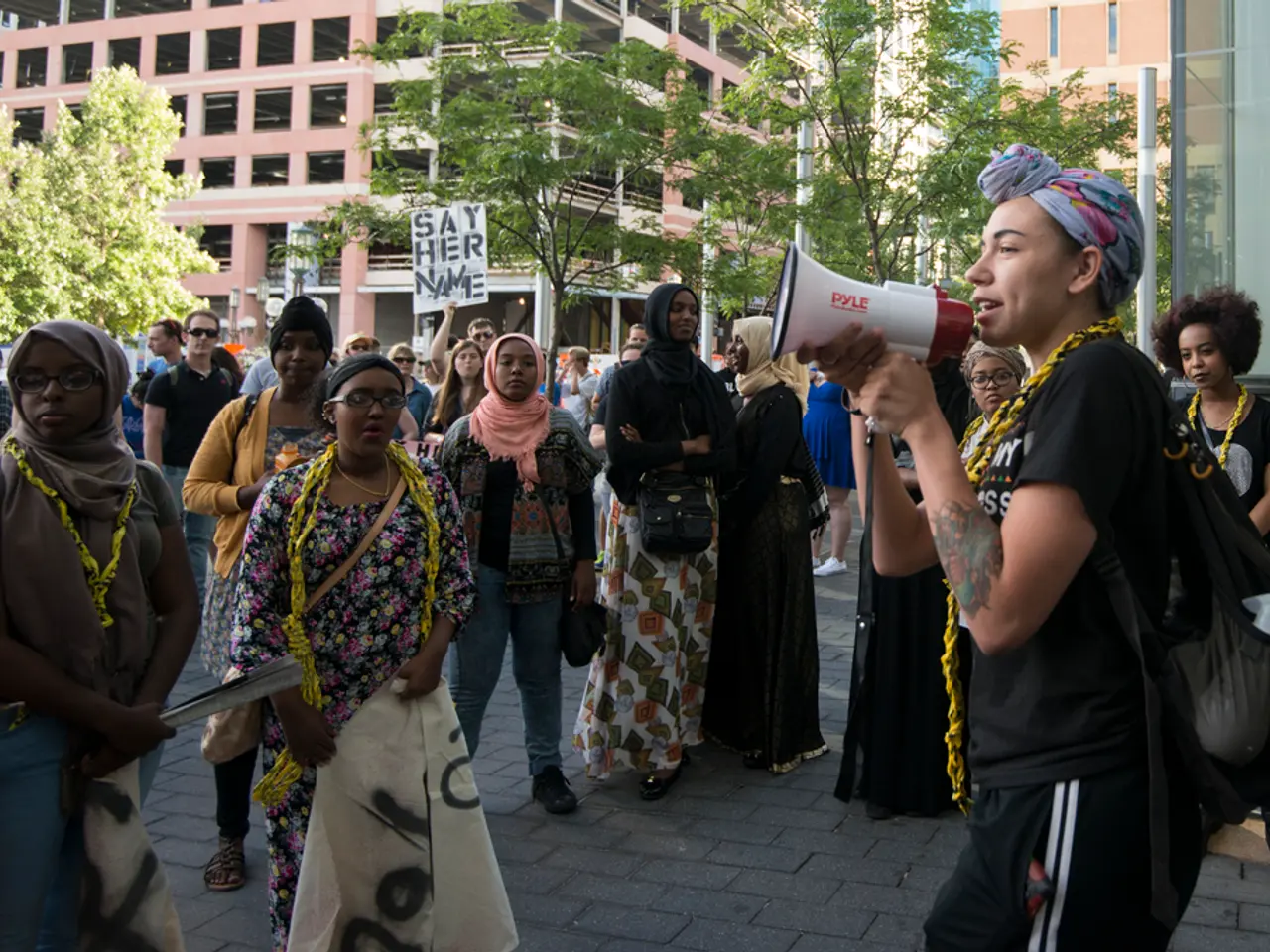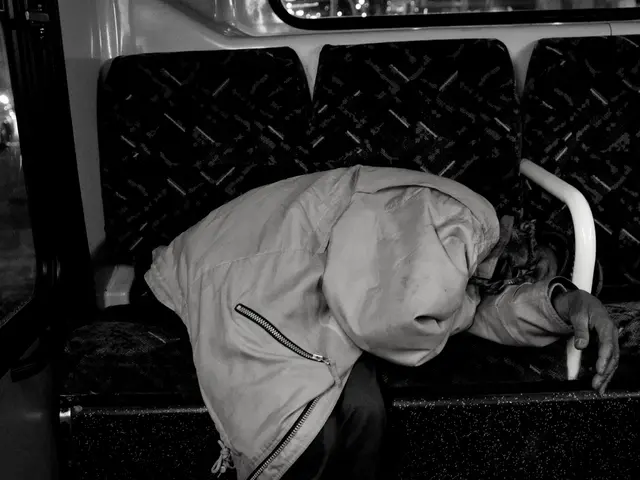Germany's study indicates a higher asylum approval rate for LGBTQI+ Muslim refugees who align with preconceived stereotypes.
In a groundbreaking study, Dr Mengia Tschalaer, an anthropologist at the University of Bristol, has shed light on the factors influencing the success of asylum applications by LGBTQI+ Muslims in Germany. The research, published in the journal Ethnic and Racial Studies, can be accessed freely once the embargo has lifted via this link.
Dr Tschalaer interviewed 15 LGBTQI+ refugees and asylum seekers from Tunisia, Syria, Lebanon, Iran, and Pakistan for the study. The interviewees shared their experiences, including instances where their translator held a homo-/transphobic attitude or lacked knowledge of gay/queer/trans issues, potentially leading to the rejection of their asylum claim.
The study suggests that portraying Germany as a liberal, tolerant country free of discrimination, while portraying Muslim countries as homophobic and morally 'backwards', increases the likelihood of receiving refugee protection. However, it also highlights that people who were not 'out' at the time of their interview, or who found it difficult to speak about their sexuality due to fear of persecution, stigma, or shame, felt marginalized.
The research found that along with class and educational background, membership of LGBTQI+ organizations and access to local queer and gay refugee organizations in Germany were the most important factors in securing a successful asylum claim. Access to legal resources and support for LGBTQI+ asylum seekers is crucial for their success in the asylum process.
However, there are concerns that the narratives and stereotypes perpetuated by the German asylum system may serve right-wing discourses on immigration in Germany. The study found that the vast majority of successful applicants were from middle to upper-class backgrounds, were assigned male at birth, and had been actively involved in gay/queer activism in their country of origin.
Dr Tschalaer proposes training decision makers, judges, and translators on LGBTQI+ identities and sexualities to avoid reproducing Islamophobic tendencies in the current immigration practices and debates in Germany. She also suggests that more needs to be done to ensure that all Muslim LGBTQI individuals enjoy the same right to asylum.
The study further found that LGBTQI+ asylum seekers who had access to information on the asylum process in Germany were much more successful. To gain asylum, asylum seekers must convince officials of their permanent identity as 'gay', 'lesbian', trans', 'bi', and/or 'intersex', and demonstrate that their sexual and gender identity has led to them being persecuted in their home country.
Some interviewees stated they felt judged on their clothing, or how they acted in the interview. These findings underscore the need for a safer, more understanding asylum process for LGBTQI+ individuals.
For more information, please contact Dr Mengia Tschalaer at +44 7444 541 573 or [email protected]. All other queries can be directed to Krystina Sihdu at [email protected] or Tel.: +44 (0)20 7017 6928.
Taylor & Francis Group is a publisher that partners with researchers, scholarly societies, universities, and libraries worldwide to bring knowledge to life.
Read also:
- Fitbit Versa 4 Experiences Continuous Price Drops on Amazon
- Asthma Diagnosis: Exploring FeNO Tests and Related Treatments
- Impact, Prevention, and Aid for Psoriatic Arthritis During Flu Season
- Heavy Rain in Delhi Causes Yamuna Flooding, Impacting DMRC's Access to Yamuna Bank Metro Station - Current Information








